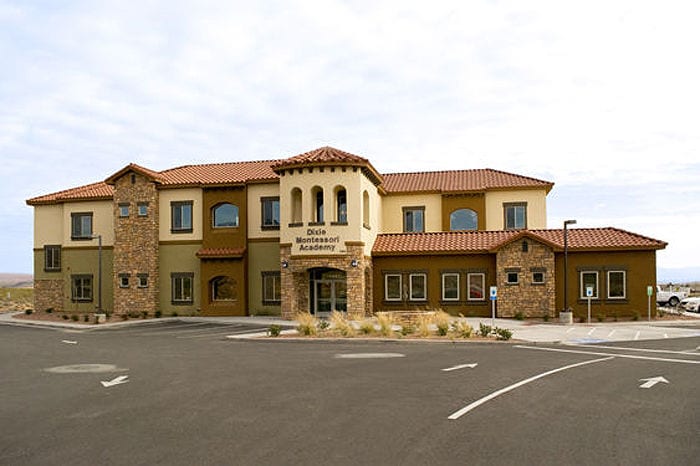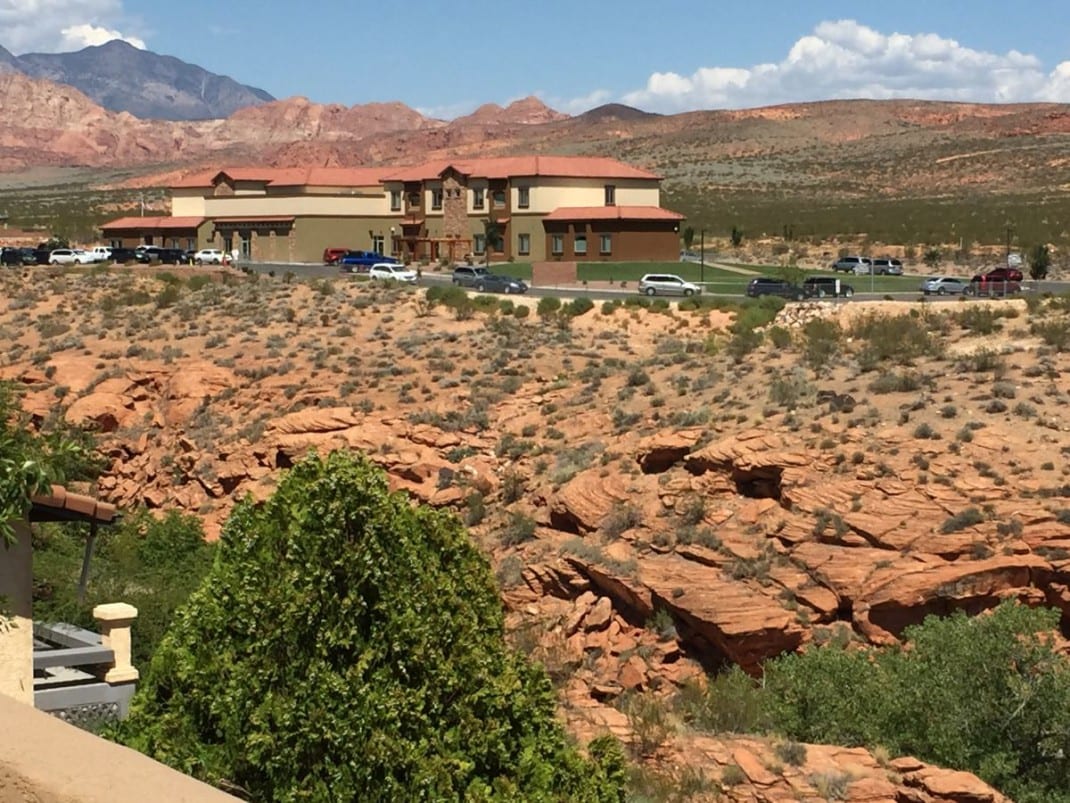 The Dixie Montessori Academy in Washington City continues to face challenges as it goes into its second school year. The most recent issue is $634,926 in impact fees assessed by Washington City. According to a document by Brent N. Bateman, lead attorney for the State of Utah Office of Property Rights Ombudsman, Washington City incorrectly and illegally calculated the high dollar sum in imposed impact fees for the Dixie Montessori Academy located in the Green Springs subdivision in Washington. Both the property owner—The Boyer Company—and the Dixie Montessori Academy have stated that they believe the impact fees were illegal.
The Dixie Montessori Academy in Washington City continues to face challenges as it goes into its second school year. The most recent issue is $634,926 in impact fees assessed by Washington City. According to a document by Brent N. Bateman, lead attorney for the State of Utah Office of Property Rights Ombudsman, Washington City incorrectly and illegally calculated the high dollar sum in imposed impact fees for the Dixie Montessori Academy located in the Green Springs subdivision in Washington. Both the property owner—The Boyer Company—and the Dixie Montessori Academy have stated that they believe the impact fees were illegal.
The Montessori method of teaching and learning was developed by Italian doctor and teacher Maria Montessori in 1906. The concept of this style of education is to foster the individual student’s natural love of learning. Students learn at their own pace rather than adhering to strict standards. The classes at the Dixie Montessori Academy differ from standard public school classes in a variety of ways, one of which is that the students are generally organized in 3 grades per class. The students also do not sit in desks but work on mats on the floor.

This controversy over impact fees is just the latest difficulty faced by the Dixie Montessori Academy. The school dealt with a lawsuit from a citizen’s group comprised of Green Springs residents early in the school’s history regarding the location of the school. Resident Lena Burton lives in a home that overlooks the school and cited increased traffic through the neighborhood as a concern.
The Boyer Company is the owner and developer of approximately 30.261 acres in Washington City. Boyer bought the acreage from a private party, built the school on 10 acres and then leased the property back to Dixie Montessori Academy, a charter school approved by the Utah State Board of Education. To develop the school site, the acreage was subdivided into two parcels.
The lawsuit is still pending. Regarding the issue with the Dixie Montessori Academy impact fees, according to the State Ombudsman advisory opinion: “Washington City’s impact fee charges to the Dixie Montessori Academy do not comply with the Impact Fee Act. Charter schools are public schools under Utah law and enjoy unique protection under the Impact Fee Act. Impact fees can only be charged to schools when the development of the school directly results in the need for additional system improvements.”
The advisory opinion states: “Impact fees must be based upon the impact of new infrastructure that must be built to accommodate, in this case the Charter School. Under the Impact Fee Act, fees arise when development costs take place. Subdivision of land alone is not development activity under the act and does not create the impact that impact fees assuage. Charging an impact fee at the time of subdivision, without consideration of the actual impacts from developmental activity is impermissible under the Impact Fee Act.”
Since the Dixie Montessori Academy is protected from impact fees unless additional system improvements are required, the State Ombudsman analysis goes on to evaluate whether those improvements necessitate the impact fees.
According to the analysis, the Boyer Company contended it had been inappropriately charged Streets and Roadways Impact Fees, saying that the Dixie Montessori Academy was built at the end of an existing and improved road, and the new school has not necessitated the construction of new roads or other transportation public facilities. Additionally, they state they were inappropriately charged a storm water impact fee and a habitat conservation impact fee.
The Boyer Company claims that Washington City would not process its subdivision application until those impact fees were paid. They argue that a subdivision application does not constitute development activity under the Impact Fee Act.
Julie Wand, the Dixie Montessori Academy director, told the Independent that Washington City has refused to come to the table to discuss these issues.
“Washington City was invited to participate in a mediation process on these impact fees with the Utah Property Rights Ombudsman,” Wand said, “and unfortunately [Washington City] refused to participate.”
Wand continued to say that Dixie Montessori Academy would have to borrow the money to pay the impact fees.
“If they borrow the money, they will have substantially less money to pay to their teachers and educate their students,” Wand said.
Dixie Montessori Academy has had full enrollment since opening for the 2014-15 school year, offering an alternative education to over 400 students for free as a public charter school.
According to Wand, a meeting is scheduled to form a committee that can be the voice of Dixie Montessori Academy as they battle this last hurdle. The meeting will be held Tuesday, August 25, at 6:30 p.m. It will be held at the school, which is located at 1160 North 645 West in Washington City.



